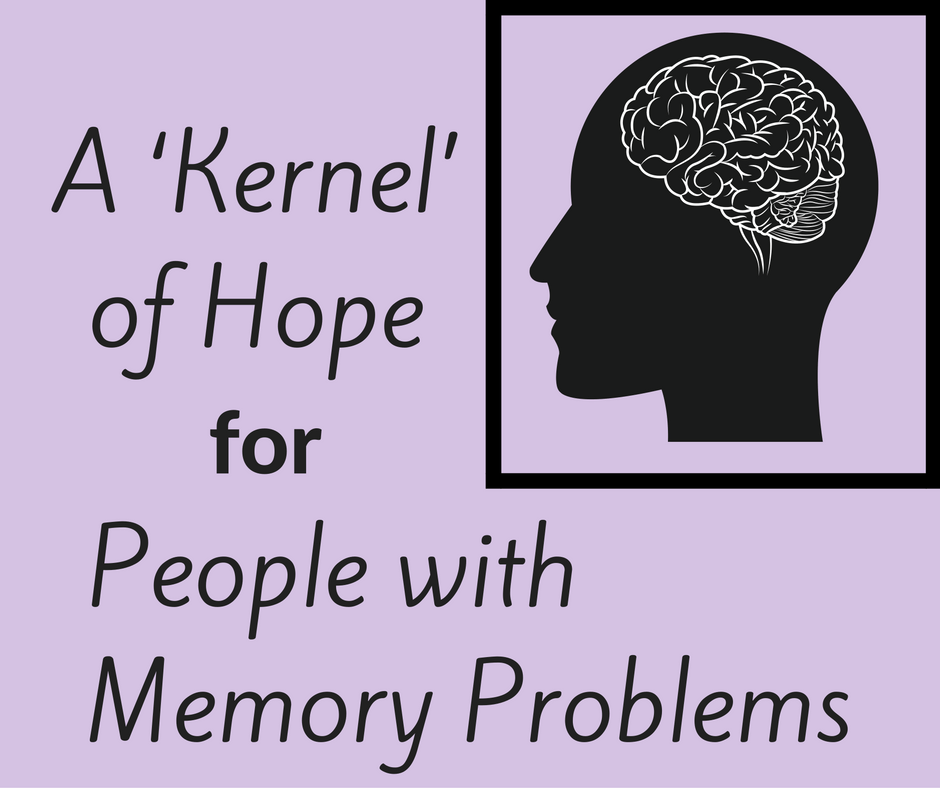A ‘Kernel’ of Hope for People with  Memory Problems
Memory Problems
Many of us have laughed off a forgotten name or lost set of keys as a “senior moment,” but dementia and other conditions that affect memory are a serious problem among older adults. More than five million American seniors have Alzheimer’s, many spending their last months or years in a specialized Alzheimer’s community. A new startup, Kernel, aims to help people with brain injuries, dementia, and other memory problems with a new brain implant made to help patients form, store, and access memories. The company is testing the implant in human patients now.
How a brain implant may help boost memory
Kernel’s device uses electricity to stimulate neurons in the part of the brain responsible for storing memories, the hippocampus. More than that, though, the implant uses a microprocessor like those found in computers to analyze incoming signals from neurons involved in learning and making new memories. That, developers hope, will aid in the creation of new memories in addition to preserving existing ones.
The race to develop memory implants
There’s a lot of brainpower working on memory implants. Ted Berger, who is a renowned University of Southern California neuroengineer, leads Kernel’s team of scientists and researchers. The startup’s advisory board includes genome research pioneer Craig Venter and USC neurosurgeon and epilepsy specialist Charles Liu, and Kernel is actively seeking the brightest minds in the field.
The Kernel team isn’t the only group doing memory-implant research and development. DARPA, the U.S. Defense Advanced Research Projects Agency, has been working on an accelerated timeline to have a “wireless, fully implantable neural-interface medical device for human clinical use” by 2018. Its focus is on helping soldiers and veterans who’ve suffered concussions and other brain trauma.
Millions of people in the US and more abroad could benefit if these projects succeed. In addition to the millions of seniors with dementia, memory-boosting brain implants could help victims of stroke, concussion, traumatic brain injury, and other types of memory problems.
Brain implants for other medical conditions
Right now, Kernel is testing its implants in volunteers who are already undergoing brain procedures as part of their epilepsy treatment. A different implant that stops or greatly reduces seizures in people with epilepsy was first used in 2013 at USC after seven years of research and trials. Meanwhile, IBM announced this year that it’s developing a computing tool to predict and prevent seizures.
Another type of brain-implant treatment, deep brain stimulation (DBS), is available to some patients with Parkinson’s and essential tremor. A neurostimulator, described as a “pacemaker for the brain,” blocks the nerve impulses that cause uncontrollable shaking in these patients.
Right now, DBS and seizure-prevention implants are only available to people whose symptoms don’t respond to medication. If Kernel and DARPA’s memory implants do well in human trials, they could help millions of people for whom no medication is truly effective. These devices could be a lifeline for millions of seniors and their caregivers who struggle with the practical and emotional fallout from memory loss every day.
Learn more about dementia and Alzheimer’s care at SeniorAdvisor.com.
1 Comment
-
Do you mind if I quote a couple of your articles as long as I provide credit and sources back to your
site? My website is in the very same area of interest as yours and my visitors would genuinely benefit from some of the information you present here.
Please let me know if this okay with you. Regards!
